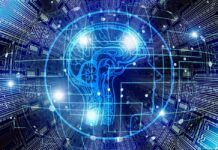Artificial Intelligence (AI) is rapidly revolutionizing numerous aspects of healthcare, and one area where it is having a profound impact is in sleep management tools. As more people struggle with sleep disorders, including insomnia, sleep apnea, and other conditions that interfere with restful sleep, AI-driven technologies are emerging as powerful solutions to help individuals manage and improve their sleep patterns. AI has the potential to not only track and analyze sleep data but also provide personalized recommendations, optimize sleep environments, and even diagnose sleep disorders more accurately. In this article, we will explore ten crucial things you need to be informed about regarding how AI is transforming sleep management tools, enhancing both the quality and accessibility of sleep care.
1. AI Can Track Sleep Patterns with High Precision
AI-driven sleep management tools, particularly wearables such as smartwatches and fitness trackers, are becoming integral in monitoring and tracking sleep patterns. These devices use a combination of sensors and algorithms to collect data on your sleep stages, including deep sleep, REM (Rapid Eye Movement) sleep, and light sleep. By continuously tracking these patterns, AI can identify abnormalities or disruptions that may impact the overall quality of your sleep.
With AI’s ability to analyze large amounts of data, it can detect subtle changes in sleep behavior that might be missed by humans. For example, AI can differentiate between occasional disturbances and chronic sleep issues, providing more accurate insights into a person’s sleep health. This data helps individuals better understand their sleep cycles and take steps to improve sleep hygiene and overall well-being.
2. AI Can Provide Personalized Sleep Recommendations
One of the most significant benefits of AI in sleep management tools is the ability to offer personalized sleep recommendations. Through the analysis of sleep data, AI systems can make individualized suggestions to improve the quality of sleep. These recommendations can include optimal sleep duration, ideal bedtime, and even specific activities or routines before sleep that may improve restfulness.
For example, AI can identify the best time for an individual to go to bed based on their sleep cycle, allowing them to achieve maximum rest and wake up feeling refreshed. Additionally, AI tools can suggest changes to lifestyle habits, such as reducing caffeine intake or increasing physical activity, both of which can have a significant impact on sleep quality. Personalized insights from AI make sleep management tools more effective by targeting the root causes of sleep problems, not just treating symptoms.
3. AI Can Optimize Sleep Environments
AI can also be utilized to optimize the sleep environment, which plays a critical role in sleep quality. Various AI-powered devices, such as smart lights, thermostats, and sound machines, can automatically adjust the sleep environment to create the ideal conditions for sleep. For instance, AI can regulate the room temperature, lighting, and even ambient noise to help promote relaxation and encourage a restful night’s sleep.
In addition, AI can learn an individual’s preferences over time and adjust the environment accordingly. For example, if you tend to sleep better in cooler environments, AI can gradually lower the temperature in your bedroom before bedtime. These small adjustments, powered by AI, can significantly improve sleep quality by creating the optimal setting for each person’s needs.
4. AI in Sleep Apnea Diagnosis and Treatment
Sleep apnea is one of the most common sleep disorders, and AI is playing a critical role in diagnosing and treating it more effectively. AI-powered sleep management tools can analyze data from devices such as CPAP (Continuous Positive Airway Pressure) machines, which are commonly used to treat sleep apnea. By analyzing airflow data, AI can detect patterns that indicate apnea events, such as periods of breathing cessation, and provide feedback to adjust the settings of the CPAP machine.
In addition to optimizing CPAP treatment, AI can also help diagnose sleep apnea with greater accuracy. By analyzing sleep data from at-home monitoring devices, AI algorithms can identify the likelihood of sleep apnea and recommend further testing or treatment. This use of AI for early diagnosis and ongoing management can significantly improve outcomes for individuals with sleep apnea.
5. AI Can Help Detect Other Sleep Disorders
In addition to sleep apnea, AI is also being used to help diagnose and manage other sleep disorders, such as insomnia, restless leg syndrome, and narcolepsy. AI algorithms can analyze patterns in sleep data, such as the frequency of awakenings or movement during sleep, to detect abnormal sleep patterns that could indicate the presence of these conditions.
For example, AI-powered sleep apps can identify behaviors associated with insomnia, such as long periods of wakefulness in the middle of the night, and suggest techniques such as cognitive behavioral therapy (CBT) to address the underlying causes of the condition. Similarly, AI can assist in diagnosing and managing conditions like narcolepsy by analyzing sleep and wake cycles and providing insights into abnormal patterns of excessive daytime sleepiness.
6. AI in Sleep Research and Development
AI is also playing a significant role in advancing sleep research. By analyzing large datasets from sleep studies, wearable devices, and clinical trials, AI can uncover new insights into the mechanisms behind sleep disorders and the best ways to treat them. Researchers are using AI to analyze the relationships between sleep patterns, brain activity, and overall health outcomes.
Moreover, AI-driven simulations and modeling can accelerate the development of new sleep management technologies. For example, AI can predict the effectiveness of certain sleep interventions before they are implemented in clinical settings, saving time and resources in the research and development process. These advances in sleep research, powered by AI, will help to uncover new treatment options and improve existing therapies for sleep disorders.
7. AI Can Improve Sleep Coaching and Therapy
In addition to providing individualized recommendations, AI can also be used to enhance sleep coaching and therapy. AI-powered sleep management tools can offer ongoing coaching to help individuals improve their sleep hygiene, adopt better habits, and follow therapeutic interventions. These tools can track progress over time and adjust recommendations based on how well an individual is responding to certain treatments or routines.
For example, AI can help guide users through cognitive behavioral therapy for insomnia (CBT-I), a highly effective treatment for chronic insomnia. By providing step-by-step instructions, tracking sleep progress, and offering reminders to follow therapeutic exercises, AI can help users stay on track with their sleep treatment. These AI-powered sleep therapy tools can provide individuals with a more affordable and accessible alternative to in-person therapy.
8. AI Can Provide Real-Time Sleep Data and Feedback
Another significant advantage of AI in sleep management is its ability to provide real-time data and feedback on sleep quality. Unlike traditional sleep studies, which require a visit to a sleep clinic, AI-powered tools can continuously monitor sleep from the comfort of home and provide instant feedback on various sleep metrics. This data can include the total amount of sleep, the amount of time spent in each sleep stage, the frequency of awakenings, and the quality of sleep.
By offering real-time feedback, AI tools allow users to make immediate adjustments to their sleep habits or environment to improve sleep quality. For example, if the data shows that an individual is waking up frequently during the night, the AI system might suggest adjustments to bedtime routines or recommend environmental changes, such as using white noise or adjusting the room temperature.
9. AI Can Enhance Sleep Education and Awareness
AI is also playing a key role in enhancing sleep education and awareness, helping individuals become more informed about the importance of sleep and how to improve their sleep hygiene. AI-powered apps can provide personalized sleep reports and insights, explaining sleep data in easy-to-understand terms and offering actionable advice for improvement.
For example, AI can track patterns in an individual’s sleep behavior over time and present them with reports on how lifestyle changes, such as reducing screen time before bed or exercising earlier in the day, have improved sleep quality. This personalized feedback helps users understand the factors that influence their sleep and empowers them to make informed decisions about their sleep habits.
10. Privacy and Security Considerations with AI in Sleep Management Tools
While AI-powered sleep management tools offer numerous benefits, there are also important privacy and security considerations to keep in mind. Since these tools collect sensitive data, including sleep patterns and potentially other health-related information, it’s crucial that proper security measures are in place to protect user data from unauthorized access or misuse.
Ensuring that sleep management tools adhere to strict privacy standards, such as those outlined by healthcare regulations like HIPAA, is vital for building trust with users. Additionally, individuals should be aware of the types of data being collected, how it is stored, and how it is used to ensure that their personal information remains secure and private.
Conclusion
AI is transforming the landscape of sleep management, offering innovative tools that not only track and analyze sleep patterns but also provide personalized recommendations, improve sleep environments, and assist in diagnosing and treating sleep disorders. From enhancing the quality of sleep to improving accessibility and affordability, AI has the potential to revolutionize how we approach sleep health. As AI continues to evolve, it will play an increasingly important role in helping individuals improve their sleep, manage sleep disorders, and enjoy better overall health. However, it’s important to remain mindful of privacy and security concerns, ensuring that these powerful tools are used responsibly to protect users’ sensitive data.

















